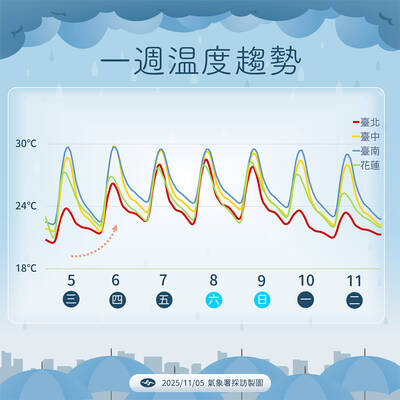The National Police Administration (NPA, 警政署) said yesterday that police officers have freedom of choice to join any party but political affiliations shouldn't interfere with police work.
The NPA's remark came in response to media reports yesterday that the DPP is inviting civil servants to join the party, as President Chen Shui-bian (
A local evening newspaper yesterday reported that the DPP wants to recruit the NPA's Deputy Director-General Hsieh Yin-tang (謝銀黨).
The report said that DPP officials are also contacting Keelung City Police Headquarters Director Wu Chen-chi (吳振吉), Senior NPA Councilor Ho Kuo-jung (何國榮), Taoyuan County Police Department Director Hou You-yi (侯友宜) and Presidential Office Security Department Chief Hsieh Fan-fan (謝芬芬) in this regard. Hsieh is currently the top female police officer in Taiwan.
The report says the DPP is expecting an estimated 10,000 police officers to join the party by the end of this year.
According to the NPA, 99 percent of all police officers are currently KMT members.
"That's because the KMT was the only choice for police officers a few decades ago. Joining the KMT before graduating from the police academy has also become a tradition," a senior official at the NPA told the Taipei Times.
However, NPA statistics show that nearly 40 percent of the officers left the KMT when the party lost the presidential election two years ago. Among the 80,000 police officers in Taiwan, 30,000 say they do not belong to any political party.
"Regarding the news article about the DPP's attempt to persuade as many police officers as possible to join the party, we won't take it too seriously," the senior officer said.
"Everybody's free to choose when it comes to political issues. However, a police officer is a public servant which means an officer must stay neutral and his job shouldn't be affected by any politics-related issues either. That's the bottom line." the senior officer concluded.

Three Taiwanese airlines have prohibited passengers from packing Bluetooth earbuds and their charger cases in checked luggage. EVA Air and Uni Air said that Bluetooth earbuds and charger cases are categorized as portable electronic devices, which should be switched off if they are placed in checked luggage based on international aviation safety regulations. They must not be in standby or sleep mode. However, as charging would continue when earbuds are placed in the charger cases, which would contravene international aviation regulations, their cases must be carried as hand luggage, they said. Tigerair Taiwan said that earbud charger cases are equipped

Foreign travelers entering Taiwan on a short layover via Taiwan Taoyuan International Airport are receiving NT$600 gift vouchers from yesterday, the Tourism Administration said, adding that it hopes the incentive would boost tourism consumption at the airport. The program, which allows travelers holding non-Taiwan passports who enter the country during a layover of up to 24 hours to claim a voucher, aims to promote attractions at the airport, the agency said in a statement on Friday. To participate, travelers must sign up on the campaign Web site, the agency said. They can then present their passport and boarding pass for their connecting international

UNILATERAL MOVES: Officials have raised concerns that Beijing could try to exert economic control over Kinmen in a key development plan next year The Civil Aviation Administration (CAA) yesterday said that China has so far failed to provide any information about a new airport expected to open next year that is less than 10km from a Taiwanese airport, raising flight safety concerns. Xiamen Xiangan International Airport is only about 3km at its closest point from the islands in Kinmen County — the scene of on-off fighting during the Cold War — and construction work can be seen and heard clearly from the Taiwan side. In a written statement sent to Reuters, the CAA said that airports close to each other need detailed advanced

UNKNOWN TRAJECTORY: The storm could move in four possible directions, with the fourth option considered the most threatening to Taiwan, meteorologist Lin De-en said A soon-to-be-formed tropical storm east of the Philippines could begin affecting Taiwan on Wednesday next week, the Central Weather Administration (CWA) said yesterday. The storm, to be named Fung-wong (鳳凰), is forecast to approach Taiwan on Tuesday next week and could begin affecting the weather in Taiwan on Wednesday, CWA forecaster Huang En-hung (黃恩鴻) said, adding that its impact might be amplified by the combined effect with the northeast monsoon. As of 2pm yesterday, the system’s center was 2,800km southeast of Oluanbi (鵝鑾鼻). It was moving northwest at 18kph. Meteorologist Lin De-en (林得恩) on Facebook yesterday wrote that the would-be storm is surrounded by